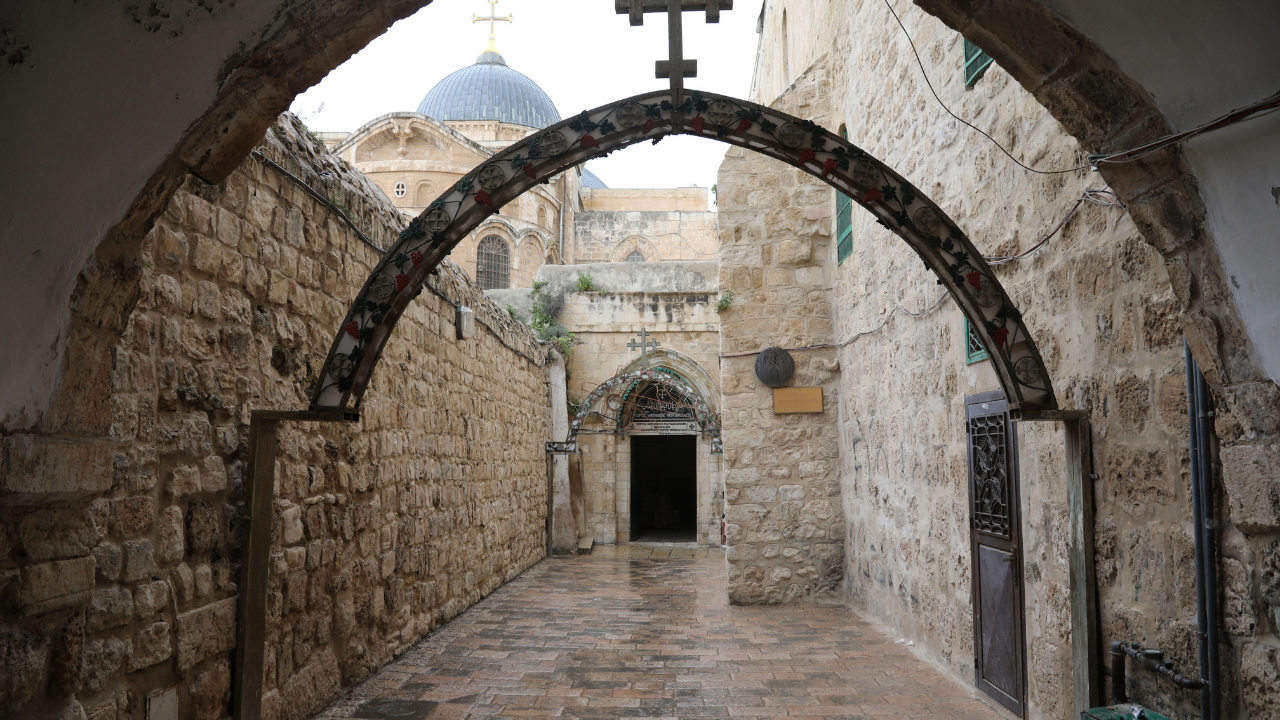No products in the cart.
What is the significance of the Jerusalem Council in the early Christian Church?
This post contains affiliate links.
The significance of the Jerusalem Council in the early Christian Church! In this piece, we will delve into the historical events that took place during this council and explore how it shaped the trajectory of Christianity. The Jerusalem Council, held around 50 CE, holds great importance in the history of our faith. It was a pivotal moment that profoundly impacted the early Christian Church.
The council convened in Jerusalem and brought together influential figures such as St. Paul the Apostle, St. Barnabas, and St. Peter the Apostle. It was called in response to a dispute between Judaic Christians who believed that Gentile Christians had to follow the Mosaic Law, including the practice of circumcision.
During the council, an important decision was reached that would change the course of Christianity forever. The council determined that Gentile Christians did not have to adhere to the Mosaic Law but should abstain from certain practices. This groundbreaking decision promoted unity within the faith and paved the way for the inclusion of Gentiles in the growing movement of Christianity.
As we explore the issues discussed and the decision reached at the Jerusalem Council, we will gain a deeper understanding of its significance and how it laid the foundation for the future of the early Christian Church.
The Issues at the Jerusalem Council
The Jerusalem Council was convened to address two main issues regarding including Gentile Christians in the early Christian Church.
- Issue 1: Gentile Christians Becoming Jews
Some Jewish Christians believed that Gentiles must be circumcised and observe the Mosaic Law before they could become Christians. This created tension and division within the community.
- Issue 2: Gentile Christians Observing the Mosaic Law
Another point of contention was whether Gentile Christians had to adhere to the entire Mosaic Law after accepting Christ. This further added to the disagreement and confusion.
The Jerusalem Council aimed to resolve these issues and provide guidance for including Gentiles in the faith.
The Decision of the Jerusalem Council
After much discussion and deliberation, the Jerusalem Council, led by St. Peter the Apostle and St. James, reached a pivotal decision that would shape the future of the early Christian Church. They decreed that Gentile Christians were not required to adhere to the Mosaic Law, distinguishing them from their Jewish counterparts. This decision, the apostolic decree, provided a clear path for Gentiles to freely embrace Christianity without conforming to Jewish customs.
While the council granted this freedom, they also recognized the importance of maintaining harmony and unity between Jewish and Gentile Christians. To ensure this, certain practices were outlined in the apostolic decree that Gentile believers were asked to abstain from. These practices included avoiding food sacrificed to idols, sexual immorality, the meat of strangled animals, and consuming blood.
This decision was a significant milestone in the history of the early Christian Church. It allowed for the inclusion of Gentiles without imposing the burdensome requirements of the Mosaic Law. The apostolic decree fostered a sense of unity and enabled the spread of the gospel message to a broader audience, ultimately contributing to the growth and expansion of Christianity.
Conclusion
The Jerusalem Council holds immense significance in the history of the early Christian Church. Around 50 CE, this landmark event paved the way for including Gentiles in the faith and fostered unity within the growing Christian community.
By exempting Gentile Christians from the observance of the Mosaic Law, the council helped bridge the cultural and religious gap between Jewish and Gentile believers. While acknowledging the diverse backgrounds of its members, the early Church embraced unity and peace, ensuring that the gospel reached a broader audience.
The decision of the Jerusalem Council, known as the apostolic decree, played a crucial role in maintaining harmony within the Christian community. It set aside the requirement for Gentile Christians to conform to Jewish customs and established guidelines to promote mutual respect and understanding.
The Jerusalem Council is a testament to the early Church’s commitment to embracing diversity and building a united community of believers. Its impact resonates throughout history, reminding us of the significance of unity in spreading the message of Christ.
FAQ
What was the purpose of the Jerusalem Council?
The Jerusalem Council was convened to address the issue of whether Gentile Christians had to become Jews before they could become Christians and whether they had to observe the entire Mosaic Law after accepting Christ.
Who were the key figures involved in the Jerusalem Council?
The council involved vital figures such as St. Paul the Apostle, St. Barnabas, and St. Peter the Apostle.
What was the decision reached at the Jerusalem Council?
The council decided that Gentile Christians did not have to observe the Mosaic Law but were asked to abstain from certain practices that could cause offense or hinder unity between Jewish and Gentile Christians.
What practices were Gentile Christians asked to abstain from?
Gentile Christians were asked to abstain from food sacrificed to idols, sexual immorality, the meat of strangled animals, and blood.
Why was the decision of the Jerusalem Council significant?
The decision of the Jerusalem Council was significant because it laid the foundation for the inclusion of Gentiles in the faith, promoted unity within the Christian community, and bridged the cultural and religious gap between Jewish and Gentile believers.
How did the decision of the Jerusalem Council impact the early Christian Church?
The decision allowed Gentiles to join the Christian community freely without conforming to Jewish customs, fostering unity, peace, and the spread of the gospel message to a broader audience.
This post contains affiliate links.











